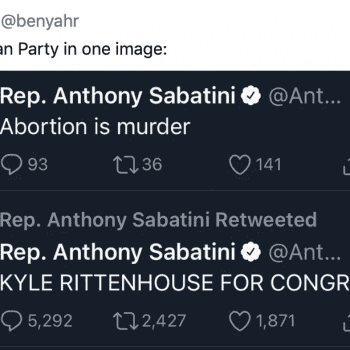This week, an article by Matthew Schmitz, senior editor of the conservative religious journal First Things, made the rounds on twitter. Church as a Non-Essential Service, warned its heading.
Schmitz, a conservative Catholic, wrote as follows:
Judging by the response of many religious leaders, church is a non-essential service. We are capable of taking prudent measures to keep our supermarkets open, but not our sanctuaries.
Coronavirus has shown what we value. In Pennsylvania, beer distrubutors are deemed essential. In San Francisco and New York, cannabis dispensaries are. The rules vary by jurisdiction, but they all aim at one overriding goal: the preservation of physical health.
Important as health is, things begin to look strange when it is valued above all else.
Just as you can’t have jobs without lives, even so you can’t have souls to minister to without lives. Health is pretty important if it means the difference between life and death—between existing in this world and not.
And here we come to an interesting point. I grew up in an evangelical home, not a Catholic one, but there are some similarities. I learned, as the Catholic church holds, that abortion was murder, that the lives of zygotes and fetuses were worth saving at all causes. But I also learned that heaven is a better place than earth, and that we should not fear death. I also learned that when it is our time to go, God will take us whether we will or no.
These teachings can create a sort of carelessness toward life. After all, death leads only to life eternal, with no sorrow or pain. Of course, even people who believe that death is merely a gateway to heaven don’t typically want to die, and the loss of loved ones is still accompanied by deep grief. They are human, after all. Still, this way of viewing the world—this way of viewing life and death—can lead to an almost indifferent sentiment that “if I die, I die.”
It is somewhat ironic that this sometimes careless indifference toward life coincides with a “pro-life” opposition to abortion. Evangelicals typically hold that those who die before the age of accountability—some ambiguous point between six and ten—go straight to heaven. This is why Andrea Yates killed her five young children—because if they died as children they would go to heaven, but if they lived to grow up they might not. In this framework—this way of understanding of life and death and eternity and salvation—abortion would seem to be a good thing. After all, fetuses that die in the womb go to heaven, while if they had lived to grow up, many would wind up in hell.
While I won’t get into the theological details, Catholics have not historically held that infants go straight to heaven on death—it has often depended on whether they are baptized. I bring up the comparison to abortion, with reference to Schmitz’ piece, only to point out that Catholics like Schmitz do tend to value life in that area, if not—apparently—here. Perhaps the problem is that Schmitz believes he can write of health without writing of life.
Remember, Schmitz wrote as follows:
Important as health is, things begin to look strange when it is valued above all else.
But this is about life, not simply about health. In early March, sixty people attended a choir practice in Washington. Nearly all fell ill. Two are now dead. In South Korea, the majority of cases originated with a megachurch that chose to stay open and continue services, even as the government discouraged large gatherings. Parishioners didn’t just fall ill, they also spread the disease to others. 158 people died. More might have, without the country’s active contact tracing, case identification, and testing. This isn’t about health. It’s about life and death.
When I was a teen growing up in an evangelical family, the deaths that felt most horrifying to me were those of the unsaved. While we could be reasonably sure that those who died in Christ went to heaven—where we would see them again in bliss—this was not the case for the unsaved, who faced only eternal torture and damnation in hell upon death. God wanted all to be saved; this was why we had missionaries, and why were called on to evangelize those around us. For the unsaved, death felt so final. It couldn’t be undone.
When COVID-19 spreads through churches, it doesn’t stay in those churches. Newly infected parishioners go on to affect those around them in their homes, in their places of work, and in the supermarket.
None of us should ever want to be responsible for another’s death, even through our own carelessness. I once knew a man who hit a young person on a motorcycle, killing him instantly. Being responsible for this young person’s death, even through an act so unintentional, crushed this man. It completely upended his life. No one of us should ever want to be in this situation—even by accidentally transmitting a virus we may not know we are carrying.
How can conservative Catholics like Schmitz, so concerned about the life of the unborn, be at once so careless of life in the face of a deadly pandemic? It boggles the mind. It is easy to wonder, in the face of such inconsistency, whether conservative Catholic opposition to abortion really is about saving a life—and not about controlling women.
Note: For an interesting takedown of a similar article in the same publication—complete with historical comparison to the 1918 Spanish Flu pandemic—see Warren Throckmorton’s post here.
I have a Patreon! Please support my writing!















